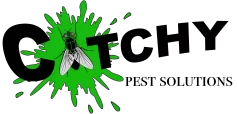Asian Lady Beetles
About asian lady beetles
The Asian Lady Beetle, also known as the lady bug, may be one of the most well-known insects. They were introduced to North America in the late 1900’s by farmers wanting to utilize their benefits. Farmers would release large amounts of Lady Bugs into their fields to eat smaller destructive insects like aphids. Lady bugs thrived in this environment and now cover most of the United States.
Behavior
Every fall Asian Lady Beetles seek sights to overwinter. In nature, they find brush piles, fallen trees, and other insulated materials. However, man-made structures also offer excellent overwintering sights. Lady bugs enter a structure through cracks along doors and windows, exterior siding, soffits, and attics. Once they find a warm place, they stay there until a spring day heats the location.
What we recommend
Houses with vinyl and wood siding remain the favorite overwintering sight for lady bugs because of the multitude of entry points. In Western North Carolina, Lady Bugs begin to look for sights around mid October, when temperatures dip to the low fifties.
There are two ways to combat Lady Bug infestations. One option is exclusion; sealing all entry points of a structure. In many cases, this may be impossible to complete. The second option is an exterior insecticide treatment. The latter may prove the most time efficient and effective. A properly timed outside treatment will eliminate any lady bug that lands on the structure, an ideal solution.
An October treatment will prove the most effective, call us for a free quote! 🙂
